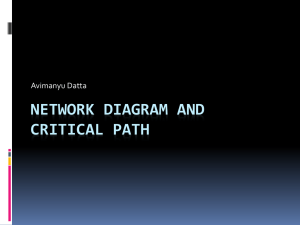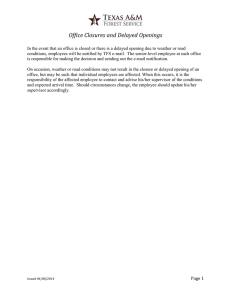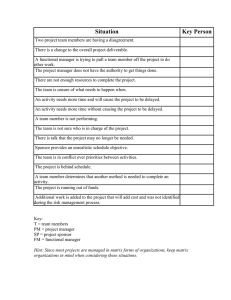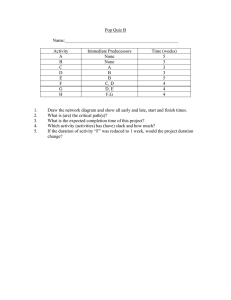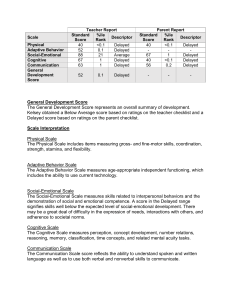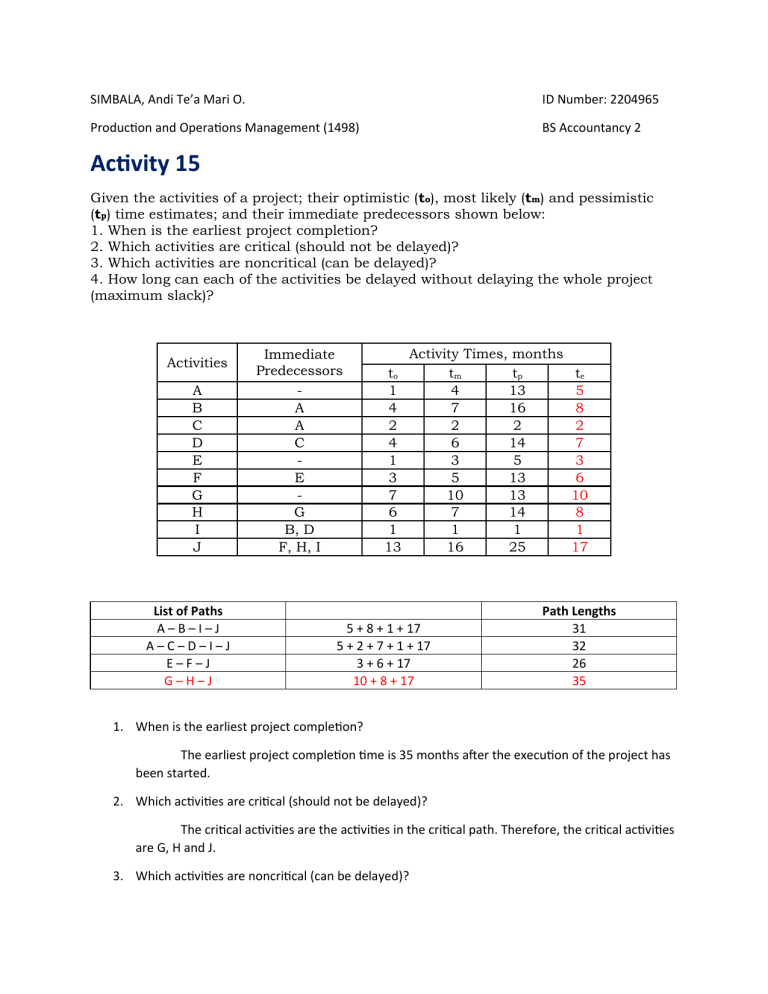
SIMBALA, Andi Te’a Mari O. ID Number: 2204965 Production and Operations Management (1498) BS Accountancy 2 Activity 15 Given the activities of a project; their optimistic (to), most likely (tm) and pessimistic (tp) time estimates; and their immediate predecessors shown below: 1. When is the earliest project completion? 2. Which activities are critical (should not be delayed)? 3. Which activities are noncritical (can be delayed)? 4. How long can each of the activities be delayed without delaying the whole project (maximum slack)? Activities A B C D E F G H I J List of Paths A–B–I–J A–C–D–I–J E–F–J G–H–J Immediate Predecessors A A C E G B, D F, H, I to 1 4 2 4 1 3 7 6 1 13 Activity Times, months tm tp 4 13 7 16 2 2 6 14 3 5 5 13 10 13 7 14 1 1 16 25 5 + 8 + 1 + 17 5 + 2 + 7 + 1 + 17 3 + 6 + 17 10 + 8 + 17 te 5 8 2 7 3 6 10 8 1 17 Path Lengths 31 32 26 35 1. When is the earliest project completion? The earliest project completion time is 35 months after the execution of the project has been started. 2. Which activities are critical (should not be delayed)? The critical activities are the activities in the critical path. Therefore, the critical activities are G, H and J. 3. Which activities are noncritical (can be delayed)? The noncritical activities are the rest of the activities that are not critical. Therefore, the noncritical activities are A, B, C, D, E, F, and I. 4. How long can each of the activities be delayed without delaying the whole project (maximum slack)? Activities Maximum Slack, months A B C D E F G H I J 3 4 3 3 9 9 0 0 4 0
